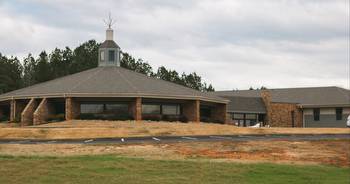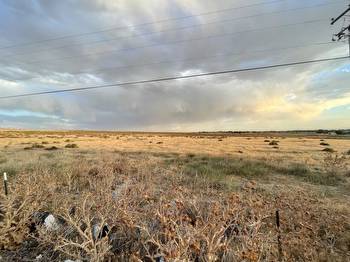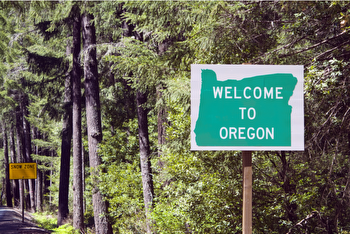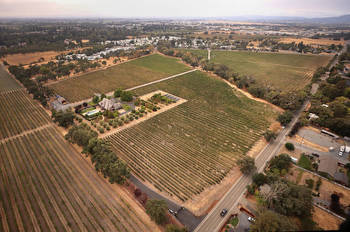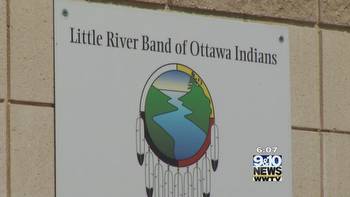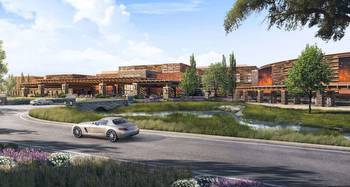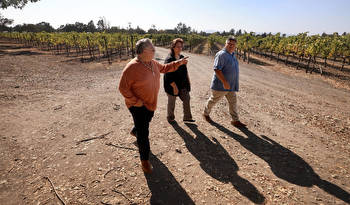Kotek announces opposition to Coquille Tribe casino project

MEDFORD, Ore. -- Gov. Tina Kotek wrote a letter to the Oregon Tribal Chairs on Thursday explaining her stance on tribal gaming -- and her opposition to the Coquille Tribe's proposed Medford casino.
In the letter -- which was addressed to all eight Oregon tribes -- Kotek said she believes in having one gaming facility per tribe.
"Throughout my legislative career, during my campaign for this office, and since the start of my administration, I have been clear that I do not favor an expansion of gaming," the letter said. "This applies to Tribes and the State. Therefore, my policy on Tribal gaming facilities maintains the status quo from past governors, i.e., good faith bargaining between sovereign Tribes and the State on one gaming facility per tribe on reservation land."
Kotek is now the third governor to oppose the project. In 2013, Gov. John Kitzhaber wrote his opposition in a letter, and so did Gov. Kate Brown in 2016.
"There is also the Coquille Tribe’s application to the Department of Interior and Bureau of Indian Affairs to have land in Medford taken into trust for the purpose of gaming (Class II). This proposal would not only lead to the expansion of gaming in that area but would create many more concerns about the expansion of gaming statewide," Kotek said in the letter. "With this letter, I wish to state my opposition to the Coquille Tribe’s Medford Casino Project."
Her letter comes as the Coquille Tribe waits for an approval or denial from the Federal Bureau of Indian Affairs, which can take months or even years.
"We had hoped that this governor would respect federal law and the economic development rights of Indian tribes," said tribal Chair Brenda Mae in a Coquille Tribes news release. "But it's no surprise that the boss of Oregon's biggest gaming enterprise wants to lock out competition."
Meade said the Oregon Lottery is a huge competitor when it comes to casinos, with the video gaming empire being found in grocery stores, bowling alleys, restaurants, lottery parlors and the internet. She also said Kotek joins a line of governors in negating promises to tribes.
"Her position amounts to a hostile act against Oregon tribes and tribal sovereignty," Meade said. "Opposing our economic development opportunities amounts to an attack on our ability to provide health care, housing, education and Elder assistance to our people."
In Oregon, only one tribe -- Confederated Tribes of Coos, Lower Umpqua and Siuslaw Indians -- has two casinos located within two different counties. An approval from the federal government would make the Coquille Tribe to be the second to have two casinos that would be more than 160 miles apart.
"The Coquille Tribe’s small Medford facility would help support the rising cost of programs and services for tribal families, while creating more than 200 local jobs," the Coquille Tribe release said. "The facility would buy from local businesses, contribute substantially to Medford’s city budget, and support local nonprofits through a grant fund."
The project has been in the works since 2011, which the Coquille Tribe has said in the past would help their tribe and create new jobs and revenue for the city. However, it has also received a great deal of criticism from previous governors, community members and other tribes -- especially the Cow Creek Band, which operates the Seven Feathers Resort Casino in Canyonville.
"Our casino would lose 25% of our profit and that's being conservative," Jessica Bochart with the Cow Creek Band of Umpqua Tribe of Indians said to NewsWatch 12 in early March. "We figure it will be much, much more. It'd mean a loss of jobs by not only tribal citizens, but by a lot of Oregonians. It would mean we would have a huge funding deficit for our tribal programs, which supports our education, healthcare, housing and elder support."
Some community members are worried about the impact a casino could have. One of them is Medford resident Nancy Flowers, who lives at Charles Point -- an apartment complex located behind Roxy Ann Lanes, which would be turned into a casino if the federal government grants the Tribe's application.
"Charles Point has been such a closed, quiet, secure area and if it's not that, if the casino goes in, and we start finding out negative impacts, then I might consider moving," she told NewsWatch 12 in early March.
The Medford City Council previously declared its opposition to the project in 2013, but on March 2, they changed it to a position of "conditional neutrality."
However, neither the city council nor the governor have any official say in whether the project moves forward -- it is a decision that will be made purely by the federal government.
“The governor has zero authority in this matter, and she should stay out of it,” Meade said in the Coquille news release.
Kotek ended her letter by saying she remains committed to working closely with tribes in the future.
"I remain committed to working closely with Tribes, the federal government, state agencies, and our broader communities to enhance Tribal affairs for the betterment of all our people," she said.













